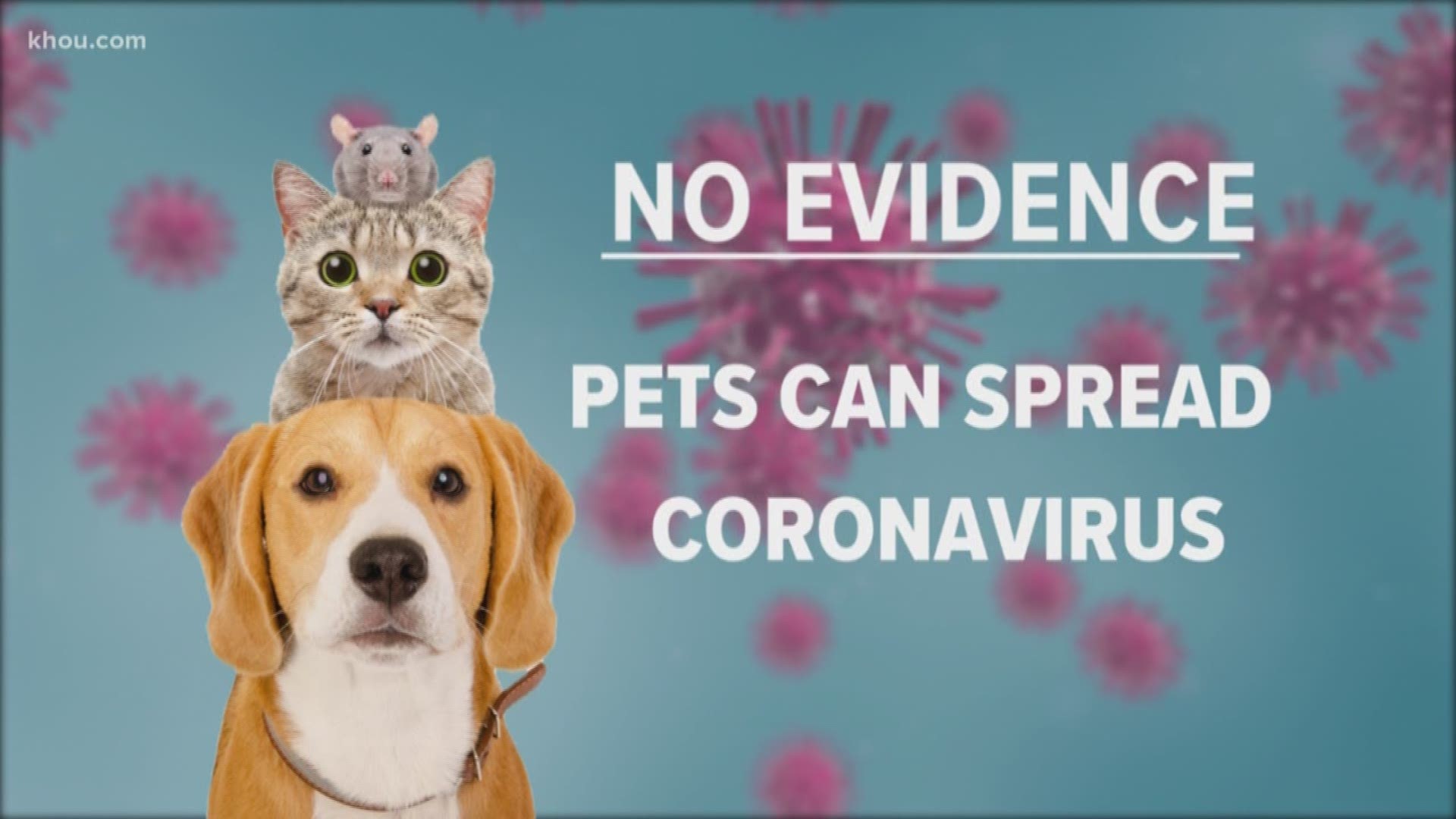HOUSTON — First things first – there is currently no evidence that animals, including pets, can be infected with the coronavirus, and no evidence that animals can even spread the virus.
But the Houston Humane Society and the Centers for Disease Control want pet owners to be prepared as the number of confirmed coronavirus cases in the Greater Houston area continue to rise.
If pet owners are ever asked to self-quarantine or become ill due to the coronavirus, the shelter and CDC recommends:
- Maintain separation and avoid direct contact with pets and other animals, including petting, snuggling, being kissed or licked, and sharing food. Try to make alternative arrangements for someone to look after pets in case you become ill.
- If you must care for your pet or be around animals while you are sick, wash your hands before and after you interact with pets and wear a face mask.
Service animals should be permitted to remain with their handlers
HHS said the coronavirus vaccine for dogs is distinctly different from COVID-19, and animals do not need to wear a face mask to be protected from COVID-19.
Pet owners should always have a “pet preparedness plan” in case of emergencies: That includes:
- Make sure you have enough food and product to care for pets’ needs.
- Identify a family member or friend who can care for pets if you or someone in your house becomes ill.
- Have crates, food and extra supplies on hand for quick movement of pets.
- Keep all animal vaccines up to date in the event boarding becomes necessary.
- Ensure all medications are documented with dosages and administering directions. Including the prescription from your veterinarian is also helpful.
- Have an identification collar for your pet: collar with ID tag and microchip
In February, a dog in Hong Kong tested "weak postive" for the virus.
Hong Kong's Agriculture, Fisheries and Conservation Department (AFCD) said in a statement that the owner of the dog was a person who was infected with the COVID-19 disease.
The AFCD did not give details on what a weak positive means, but officials said they plan to run more tests to see if the dog is sick or whether the results were skewed by "environmental contamination of the dog's mouth and nose."
MORE ON CORONAVIRUS:
- Rice University cancels classes due to coronavirus concerns
- North Texas parents, 3-year-old child test positive for COVID-19, health officials say
- Ivy League cancels basketball tournaments amid coronavirus concerns
- Houston hospitals update visitation policies over coronavirus concerns
- Trump has not been tested for coronavirus

